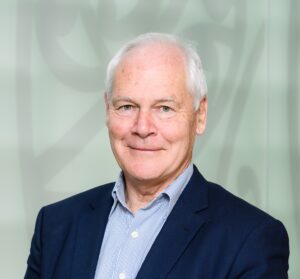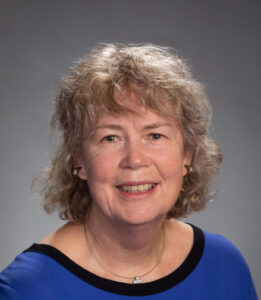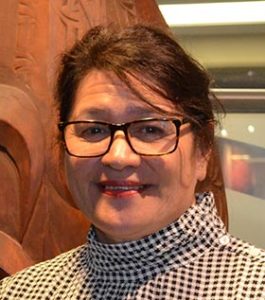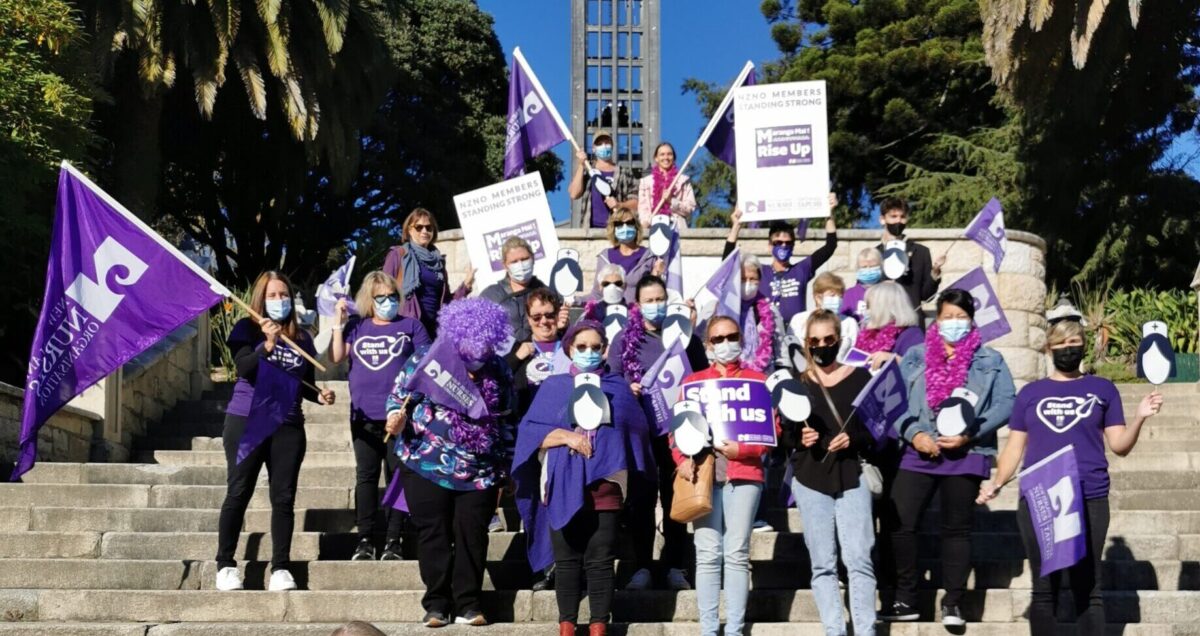“Sitting quietly in the corner and having a whinge about our problems is not going to cut it anymore,” NZNO chief executive Paul Goulter said at Thursday’s launch of Maranga Mai! Members needed to be focused and prepared to act, he said. “The time for talk has passed. This is now a call to action. Maranga Mai! — rise up, rise up as one.”
An estimated 800-plus members attended the event, hosted by comedian Michelle A’Court, many sharing their anger, depair and sadness online over their working conditions.
Goulter said estimated nursing vacancies of 4000 were “not even close” to what what was needed — which was more nurses, caregivers and more Māori and Pasifika health staff. “We need to go further. We need to advocate and find solutions – answers and fixes to the problems that we face.”

The profession had not been listened to by successive governments.. “Just gently asking for them hasn’t worked — it hasn’t worked. We haven’t been listened to. Our needs haven’t been responded to, by governments.. for 30 or 40 years. This crisis has been widely-signalled for a long period and no-one has taken account of what is needed and been accountable for that outcome.”
“The time for talk has passed. This is now a call to action.”
There would be rallies, rather than strikes, with nurses “visible” in their communities — involved with local events and elections, Goulter said.
NZNO president Anne Daniels said it was no longer enough to rely on the “fearsome few” to advocate for change. “Every nurse, everywhere, must rise up.”
Nurses needed to know there would be enough nurses to care for patients safely, she said. “The day when we could go home satisfied knowing we had done a good job has long gone. As the most respected health-care professionals in New Zealand, our mana has well and truly been trampled on — there has been no respect for a long time.”

“Our calls to be heard have gone unanswered and now we are breaking, some are broken.”
Repeatedly called upon to fill the shortfall, nurses were “breaking”, Daniels said. “We are a highly skilled workforce who keep trying to meet the ever-increasing demands placed upon us. Our wellbeing absolutely suffers. We suffer from moral injury as we are repeatedly expected choose who gets care and who does not, putting our patients at risk. “Our calls to be heard have gone unanswered and now we are breaking, some are broken.”
But there was hope in collective action – as nurses in Australia [1986 50-day strike] and workers in Kawarau [86-day strike in 1986] had proven, Daniels said.
Goulter announced NZNO’s five fixes:
- Actualising te Tiriti, or “making real” what our aspirations are for Māori and Māori nurses. “Right across the motu, we cannot accept the dreadful outcomes [in] Māori health in this country, and we must give our Māori workforce the right to do what is right to address that.”
- More nurses across the health sector.
- Pay and conditions that meet nurses’ value and expectations.
- More people training to be nurses.
- More Māori and Pasifika nurses.
Political power — making the nursing crisis a major issue for the 2023 General Election — organising widespread action on the ground and maintaining public support were key elements to success, Goulter said. “We have to hit the streets, we have to mobilise and and we have be out there, loud and proud.”
Kaiwhakahaere Kerri Nuku said actualising te Tiriti across the health system was “critical” to ensure authentic engagement with Māori and “culturally safe practice is carried out for our people”, no matter the setting.

Campaigning “is not for the faint-hearted” and required nurses across sectors to work together. “We need to stand side by side as nurses and honour the profession and honour the role we have and the power we can conjure up.. because a force of 55,000 nurses working together is member power to its fullest.”

Sharing her personal experiences of inequality, chair of NZNO student body, Te Rūnanga Tauira, Te Waiharakeke Biddle, said there was a lot of inequality between nurses in different areas. This campaign “means equality, it means equity” and hoped it would mean more Māori nurses, which would help whānau.
Nursing leaders from around the world spoke at the launch. Canadian Nurses Association chief executive Tim Guest spoke about the impact of COVID on nurses’ mental health, and how nurses could be powerful voice for change if they rose up together. “Please know that you have a partner in Canadian nurses and we are all in this together.”
“A force of 55,000 nurses working together is member power to its fullest.”
International Council of Nurses chief executive Howard Catton said the ICN supported Maranga Mai! and nurses were at the centre of global health and happiness. “We are the foundation, the bedrock, upon which global health will be built.”
The pandemic had taken a “terrible toll” on the global nursing workforce, said Catton, urging nurses to “stay strong, stay united and keep the faith”.
Australian Nursing and Midwifery Federation assistant federal secretary Lori-Anne Sharpe said it had never been more important for nurses to stick together. “We know that we need staff staffing, and appropriate skills mix and we need good working conditions and appropriate remuneration.”

Maranga Mai! project team member Jarrod Bates said more than 420 members registered for the launch but with 10 events around the country, estimated more than double that would have attended.
Sign up here for the campaign: www.maranga-mai.nzno.org.nz.





